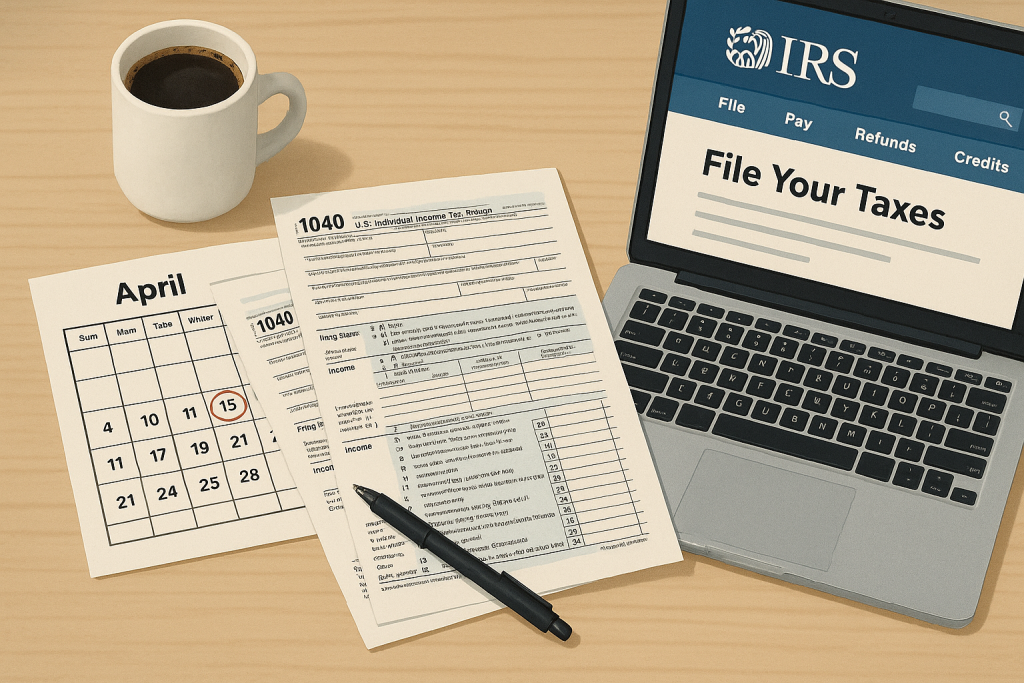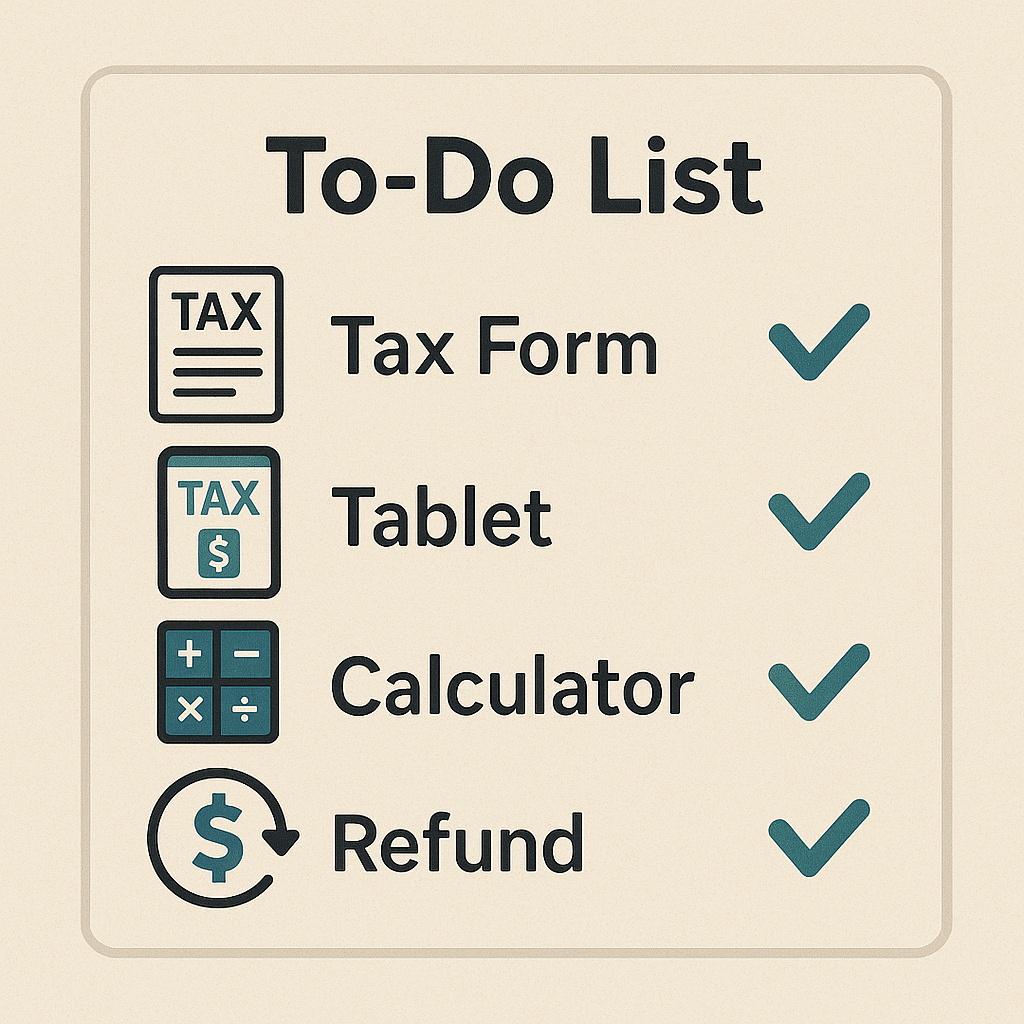Filing taxes in the United States can be a daunting task, but with a comprehensive checklist and proper preparation, it becomes manageable. Whether you’re a seasoned taxpayer or filing for the first time, having all your paperwork in order is crucial to ensure a smooth filing process.
This blog post will guide you through essential steps and considerations to help you file your taxes accurately and efficiently. Make the experience less stressful by adhering to our well-crafted list and staying informed about possible deductions and credits.
Essential documents for tax preparation

Before you begin the process of submitting your tax return, gather all necessary documents to prevent delays and inaccuracies. Key documents include W-2 forms from your employers, which summarize your annual earnings and tax withholdings. If you are self-employed or have other income streams, you should collect 1099 forms that report additional income you earned.
Investment income is another aspect to consider. Collect 1099-INT or 1099-DIV forms, which detail any interest or dividend income you received over the year. These forms are usually provided by your financial institutions. If you’ve realized gains or losses from the sale of securities, gather any related 1099-B forms. These forms help accurately report your investment income and ensure compliance with IRS rules.
For those who own a home, it’s vital to have documentation showing mortgage interest paid, as this can often provide significant tax deductions. The same applies to property tax statements, which might result in further deductions.
Personal information required
Personal details are fundamental to accurately fill out your tax return. Ensure you have the Social Security numbers for yourself, your spouse, and any dependents you claim. These numbers are essential for identity verification and to validate any tax credits. If you’ve experienced any changes in your family dynamics, like marriage or having a child, update these details accordingly.
Another aspect is ensuring your bank account information is accurate if you’re expecting a refund and prefer direct deposit. This process accelerates the receipt of your refund and minimizes the chances of a lost check. Confirm that your address and contact information are updated, as this helps the IRS reach you if issues arise.
Business and self-employment records
If you’re an entrepreneur or work as a freelancer, tracking business-related income and expenses is vital. Tax documents such as profit and loss statements provide a concise financial summary of your business operations. Keeping detailed records of business expenses can reduce your taxable income significantly.
Consider expenses like travel, supplies, and utilities, as these can often qualify as deductible expenses if they’ve been incurred strictly for business purposes. Home office deductions are also available if you use part of your home exclusively for business activities. Keep receipts and any other evidence of such expenses to substantiate claims if questioned by the IRS.
Self-employed individuals may also be eligible for additional tax credits, such as the self-employment tax deduction. Staying informed about these benefits can lower your tax liability, thus retaining more of your earnings. Consistent and accurate bookkeeping eases the stress of tax season.
Maximizing deductions and credits
Deductions and credits are pivotal in reducing your overall tax bill. Understanding which you are eligible for can significantly benefit your financial standing. Common deductions include those related to education, such as student loan interest deductions. Aim to capture every eligible deduction to lower your taxable income.
Credits are equally crucial, as they provide a direct reduction in your tax liability. Investigate options like the Earned Income Tax Credit, especially if you’re a lower-income filer. Child Tax Credits are also noteworthy, offering significant relief for taxpayers with dependent children. Each credit has specific eligibility requirements and providing accurate information is key.
Medical and educational expenses
If you’ve faced significant medical expenses throughout the year, these costs may qualify as deductions on your tax return. Keep accurate records of out-of-pocket expenses like doctor visits, prescriptions, and medical equipment. These deductions can ease the financial burden of healthcare.
Educational costs also provide opportunities for tax relief. Credits such as the Lifetime Learning Credit offer substantial savings for those pursuing additional education or skills training. To benefit, maintain records of tuition payments and any other relevant educational expenses.
Both medical and educational deductions require precise documentation. Carefully organized paperwork ensures all eligible expenses are claimed, potentially reducing the overall tax owed. Regularly reviewing your expenses against IRS guidelines can highlight untapped potential for deduction.
Retirement contributions
Tax-deferred retirement accounts, such as an IRA or 401(k), offer favorable tax treatment when planning for the future. Contributions made can often be deducted, providing immediate tax savings while securing your financial future. Review your contributions to ensure you are maximizing these deductions.
Keep in mind the contribution limits set for each tax year and the deadlines that apply to them. Even if you’re self-employed, options like a SEP IRA provide opportunities for tax-deferred savings. IRS guidelines outline how these contributions reduce taxable income, so consult these resources to fully utilize available incentives.





